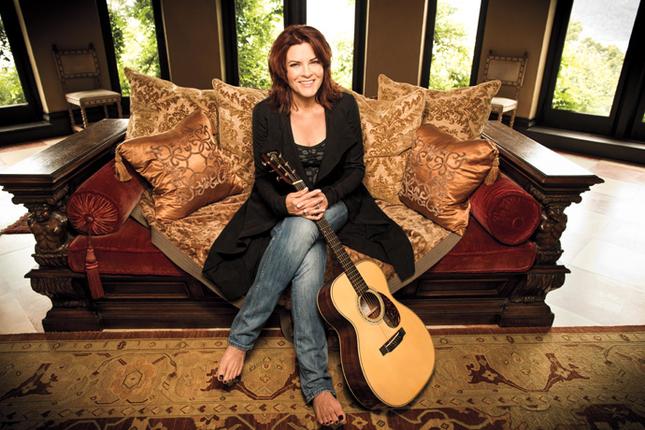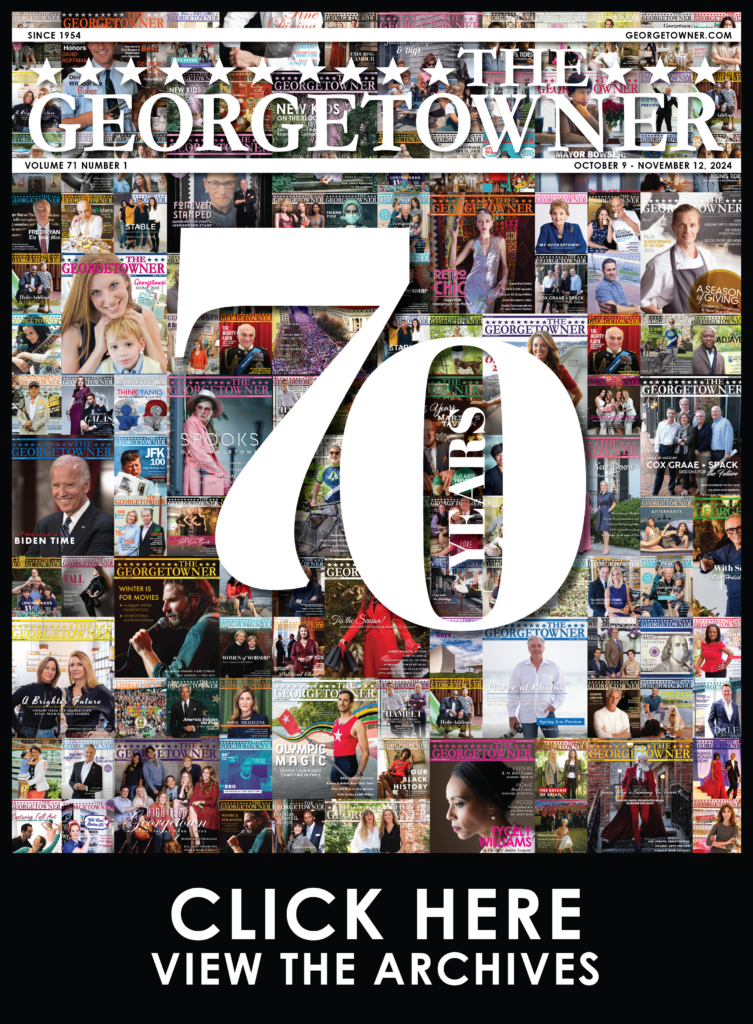Roseanne Cash: `River & Thread’ of Memories
By • January 16, 2015 0 3046

The voice on the phone is clear and friendly, not unlike the singing voice. It’s conversational, the voice of a woman who seems well rested and comfortable.
It’s the voice of Rosanne Cash, who’s coming to town this Friday for a concert at Lisner Auditorium, singing songs from her new album, “The River & The Thread.” It’s a group of songs which seem at once personal and intimate, but also generously sung as stories we all can share in, songs of experience, passed on down or rediscovered.
The idea for the songs came from various road trips Cash took through several southern states with her husband, John Leventhal, who is the producer, arranger and a guitarist on the album.
“It’s not an exercise in nostalgia,” she said. “I’m from there, I was born in Memphis, I worked there, my family is a part of all that—Arkansas, Mississippi, Alabama, Tennessee, but I had my growing up in California, and I’ve lived in New York for the last 20 years, so I’ve been in different places in different times. I’ve been here for twenty years now, so I guess you can say I’m a New Yorker.”
She has a pretty good handle on who she is now, who she was and what she’s a part of.
She is after all the daughter of Johnny Cash and his first wife Vivian, and stepdaughter of June Carter Cash.
She started out as a sharp voiced introspective singer. In her twenties, she married country-folk star Rodney Crowell.
There’s enough drama, history, threads and talent in her life to make for an epic musical series: two marriages, three daughters, and a son; the daughter of a weighty legend; bearing the weight of expectations that go with that; and a period of illness that began with brain surgery, after she announced that she had the rare brain disease, Chiari Malformation Type I.
We don’t talk about her dad, her step-mother or her mother—all of whom died within a fairly short time of each other. Maybe it’s because it’s a conversation she’s had so many times and the residue is in so much of her music, that there’s no doing justice to it in the brief time we have.
Instead, we talk about the South, about working with her husband—“he wrote 98% of the music, I wrote most of the words,” and “it was really good for our marriage”—about her recent residency at the Library of Congress with Poet Laureate Natasha Trethewey, and, of course about the album.
Those things are connected, especially in the music, which, because of her considerable gifts as a writer, seem to course out of the river that also contains poetry and the rich word lore of the South.
“I think the South is especially rich in writers and literature, it’s in the blood, in the history,” Cash said, who’s especially fond of Carson McCullers.
Although she had hit albums and records and was often consideredcby connection, if not necessarily by style—to be a part of the Memphis-Nashville musical community, Cash grew up favoring the California style music by the likes of the Eagles, and the musical intimacy of singer-songwriter Joni Mitchell. Some of her early efforts reflected that influence.
These days if you Google her name, in terms of genre or music, it crops up in the all-encompassing halo of “Americana” music, which has its own Grammy category.
“I don’t know, I suppose its about singer-songwriters, about folk-blues-and country,” Cash said. “Emmy Lou Harris has always said that she was Americana before there ever was such a thing.”
Crowell, with whom she had three daughters and with whom she remains friendly, recently won a Grammy with Emmy Lou Harris for best Americana album.
If there is an artist today that encompasses a kind of contemporary Americana, a voice with enough range and experience to speak to large parts of the country, it’s probably Cash. She is in her 50s now, and has dealt musically with her rich and sometimes troubling relationship with her father, in memorial concerts, in the great “Black Cadillac” album—which was highly personal, but also resonated with her father’s audiences—and with the “The List,” which features selections from “100 Essential Country Songs,” which her father compiled for her a long time ago.
But “The River & The Thread” is something different. It’s witchy, folky. It feels like someone traveling through her memories, but also keenly at home with herself. The songs are richly written—musically and word-wise. They have a way of making you want to rummage through them again, right away, and for sure later, like some fresh treasure trove found in the attic.
That’s especially true of “A Feather’s Not a Bird,” the first track, which is as simple as a modern incantation. Her voice is clear and mature in the way some of her early songs were not. Leventhal joins in from time to time, giving resonant timber to parts here and there, and his guitar-playing carries everything along like a boat on a river. The New York Daily News said her music translates “the passion and specificity of roots music into her own graceful language.”
Her voice is traveling here—but not staying—rummaging in her roots and her people. It’s looking into the mirror out on the road. And it’s affecting because while it’s about particular people, journeys and stories, like a Virginia Civil War soldier, for instance, she sings for all of us. We get it right away.
The refrain from “A Feather’s Not a Bird” seems like a riddle solved, but it’s also haunting: “A feather’s not a bird/the rain is not the sea/a stone is not a mountain/but a river runs through me.”
Rosanne Cash appears at Lisner Auditorium, Friday, Feb. 14, at 8 p.m.

